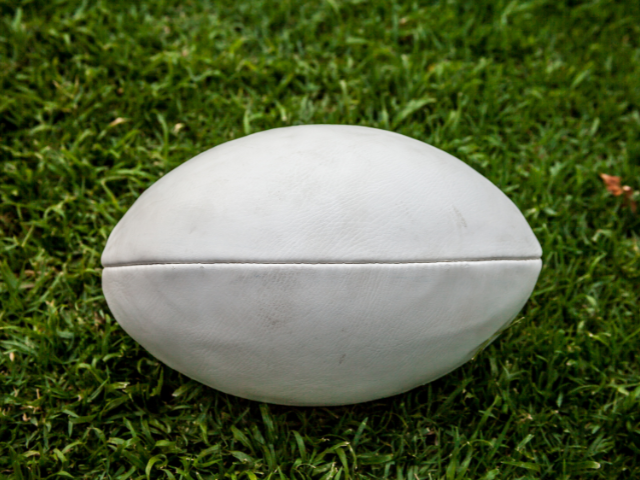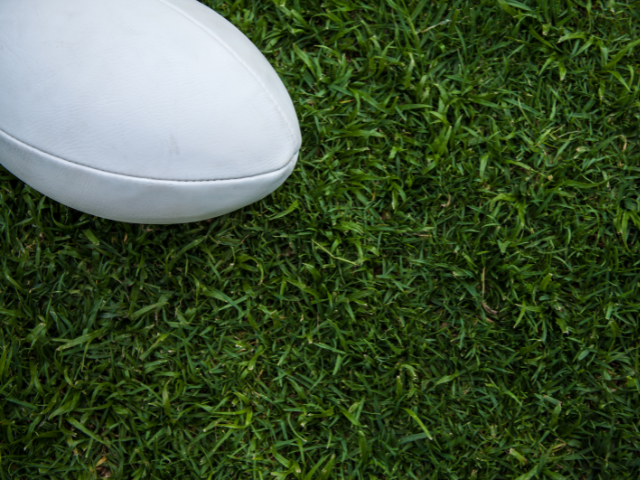The right training rugby balls for beginners can make a huge difference in helping new players get comfortable with the game. Imagine trying to learn how to kick with a ball that’s too big or hard to grip—frustrating, right?
Starting out in rugby can feel a bit challenging, especially when learning the basics like passing, catching, and kicking.
That’s why finding the perfect rugby ball for training is so important. In this post, we’ll dive into what makes a good training ball, how to choose the right size, and why grip and material matter when you’re just starting.
Let’s get started and find out which rugby balls are perfect for beginner training sessions!
Why the Right Training Rugby Ball Matters
Choosing the right training rugby ball is important for anyone just starting out in rugby. It’s more than just a piece of equipment; the right ball can help you learn the game faster and improve your skills more effectively. For beginners, using a ball that is the correct size and has the right grip makes it easier to catch, pass, and kick, which are the core parts of the game.
A good training ball is designed to help you build confidence. It should be durable, so it can handle repeated use, and it should have a soft grip that’s easy to hold, even in wet conditions. The right ball will help you focus on your technique without being too challenging to control.
What Makes a Good Training Rugby Ball?
Choosing the right rugby ball depends on a few key things. For beginners, you don’t need the most expensive ball, but you should pick one that’s well-made and easy to handle.
Here are a few things to look out for:

Grip: A firm grip is one of the most important features for beginners. You want a ball that is easy to hold, even if your hands get sweaty or it’s raining.
Size: Rugby balls come in different sizes. For beginners, it’s best to start with a size 4 or 5, depending on your age. Adults typically use size 5, while younger players use size 4.
Durability: Since you’re just starting out, you will use your ball a lot. Choose one that can withstand the wear and tear of regular practice.
Weight: Training balls are often slightly lighter than match balls. This makes them easier to handle when learning to pass and kick.
Our Top Picks for Training Rugby Balls for Beginners
We’ve got you covered if you’re wondering which training rugby balls are best for beginners.
Here are a few that we recommend, all of which are available on Amazon:
1. Gilbert G-TR4000 Training Rugby Ball
This ball is a favorite for many beginner rugby players. It’s designed with an excellent grip, making it easier to hold and pass during practice. It’s also available in multiple sizes, so adults and younger players can find the right fit.
Why we recommend it: Excellent grip, perfect for beginners, and highly durable.
2. Rhino Cyclone Training Rugby Ball
Rhino is another well-known brand in rugby, and their Cyclone training ball is an excellent option for beginners. It’s affordable and offers a sturdy grip, perfect for learning to catch and pass.
Why we recommend it: Lightweight, affordable, and durable for regular training sessions.
3. Optimum Street Rugby Training Ball
This ball is a good choice for younger beginners. It’s designed with a fun look and excellent grip. It’s also very durable, which is great for kids who like to practice for hours.
Why we recommend it: Fun design, is great for younger players and has excellent durability.
How to Take Care of Your Training Rugby Ball
Once you’ve found the perfect training rugby ball, knowing how to care for it is essential. A rugby ball, especially one used for training, can last long if you keep it clean and properly inflated.

Clean it regularly: After each practice, wipe down your ball with a damp cloth to remove dirt and grime. This helps maintain the grip and keeps the ball looking new.
Store it properly: Do not leave your ball in the sun for more than a few minutes. Over time, this can cause it to become dry and cracked.
Check the air pressure: Ensure your ball is properly inflated before each practice. This will ensure it bounces and flies correctly when you pass and kick it.
Benefits of Using a Training Rugby Ball
Training rugby balls are made to help beginners master their skills. Whether you’re practicing passing, kicking, or learning to handle the ball, these balls are designed to help you improve. They are typically lighter than match balls, making them easier to manage during long practice sessions.
- Easier to handle: Training rugby balls are often designed with beginners in mind, offering better grip and lighter weight.
- Long-lasting: These balls are made to withstand hours of practice without wearing out quickly.
You can focus on getting your basics right by starting with a training rugby ball. And once you feel confident, you can move on to using a match ball during games.
Final Tips for Beginners
Learning rugby can take some time, but it becomes more accessible with the right training rugby ball.
Here are a few more tips to help you along the way:
- Practice regularly: The more you practice, the better you’ll get. Try to spend time with your rugby ball every day, even just a few minutes.
- Watch other players: Watching rugby games, especially focusing on how players handle the ball, can help you understand what to do during your practice.
- Join a rugby club: If you still need to, consider joining a rugby club for beginners. It’s a great way to learn from others and improve faster.
Conclusion
Having the proper training rugby ball makes a huge difference for any beginner in rugby.
These balls are designed to help you practice passing, kicking, and catching, and they’re made to be easy to handle, especially for those just starting.
Whether you choose a ball from Gilbert, Rhino, or Optimum, investing in a good training rugby ball will help you learn the game faster and more effectively.
Don’t forget to check out our recently published articles for more rugby training tips, gear reviews, and helpful advice!